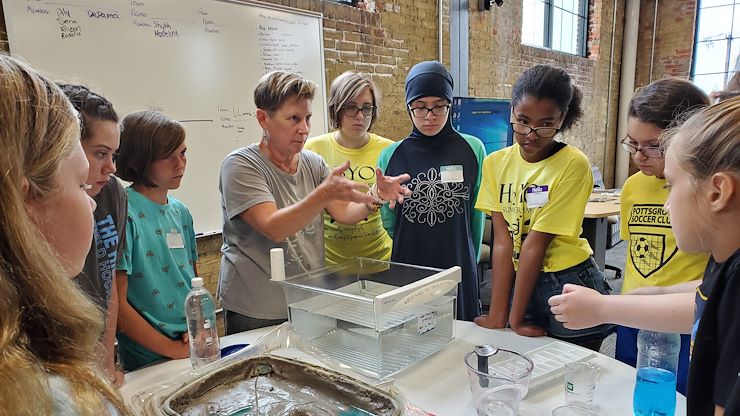
Connie Nye, an environmental educator, author and founder of Sweet Water Education Events Training, teaches the students about aquatic life.
The weeklong H2YO! Summer Camp at Montgomery County Community College was a time for 24 female middle school-aged students to explore and learn about the Schuylkill River Watershed firsthand.
In collaboration with the Schuylkill River Greenways and Green Valleys Watershed Association, MCCC hosted the camp in its Innovation and Sustainability Hub at its West Campus in Pottstown from Aug. 12-16. Anjuli Aker, an administrative assistant for MCCC’s Academic Affairs Department, coordinated the camp details and helped the students throughout the week.
The campers started their week with some icebreaker activities led by Connie Nye, an environmental educator, author and founder of Sweet Water Education Events Training, who often conducts different programs for Green Valleys Watershed Association.
“They came here not knowing anyone or each other, so these activities helped them to connect and breakdown the scary feeling of not having a community,” Nye said.
To learn more about the Schuylkill River Watershed, they visited the River of Revolutions Interpretive Center at the Schuylkill River Greenways headquarters in Pottstown. Education and Volunteer Coordinator Sarah Crothers and AWE Watershed Fellow Kennedy Rush, who is a senior at the University of Maryland, discussed what a watershed encompasses.
“It’s important for students to learn about their environment and what impacts it,” Crothers said. “This is a formative time for these girls, and the camp will help them get interested and excited about science and STEM fields.”
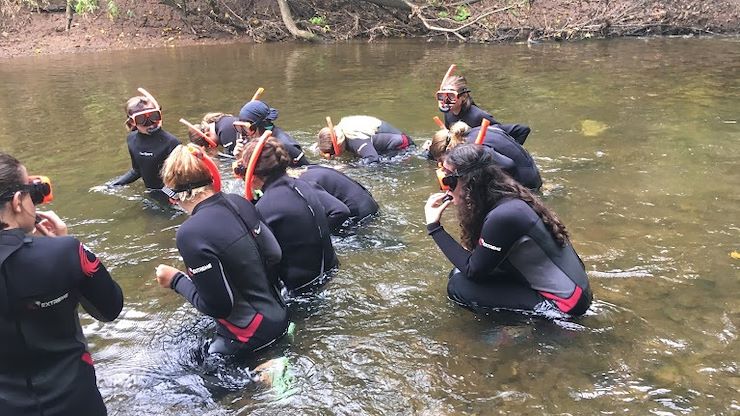 During the second day, the campers put on wet suits to go creek snorkeling in the
Manatawny Creek, where they saw different organisms that live in the water. They learned
about the biotic index, which is an indicator of the health status of the water based
upon the type of macroinvertebrates that live there. In the afternoon, the girls used
their mapping skills during a scavenger hunt to search for ice cream sundae items.
During the second day, the campers put on wet suits to go creek snorkeling in the
Manatawny Creek, where they saw different organisms that live in the water. They learned
about the biotic index, which is an indicator of the health status of the water based
upon the type of macroinvertebrates that live there. In the afternoon, the girls used
their mapping skills during a scavenger hunt to search for ice cream sundae items.
On their third day, the girls had fun kayaking on the Schuylkill River and observing
wildlife 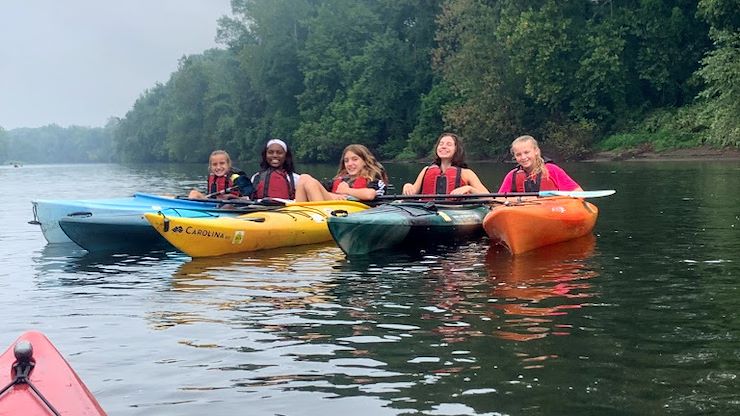 along the way, including a bald eagle, white egret and great blue heron. The camp
collaborated with Take It Outdoors Adventures, which provided the kayaks and guides for the 4.5-mile excursion.
along the way, including a bald eagle, white egret and great blue heron. The camp
collaborated with Take It Outdoors Adventures, which provided the kayaks and guides for the 4.5-mile excursion.
In the afternoon, Crothers and Rush taught the students how to measure the quality and check the health of the Manatawny Creek, checking the water’s turbidity and conductivity and its pH, nitrate and oxygen levels.
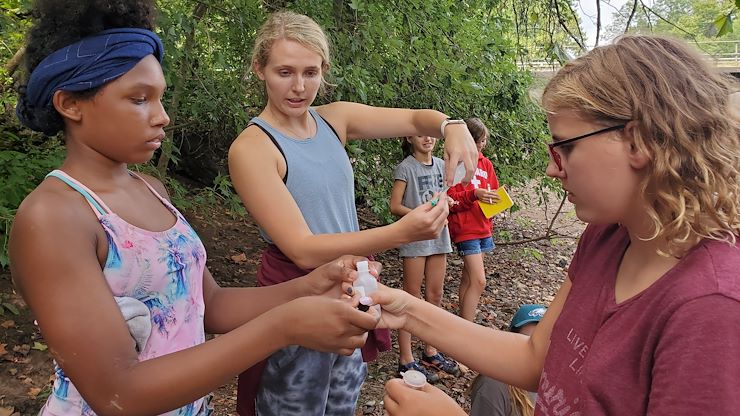 After discussing the results, which showed the creek was overall fairly healthy, the
campers then headed inside to the laboratory rooms where MCCC’s Biology Professor
M. Kris Bompadre and Environmental Geology Professor Dominike Merle-Johnson discussed
the culture results of the water samples the girls took earlier in the week.
After discussing the results, which showed the creek was overall fairly healthy, the
campers then headed inside to the laboratory rooms where MCCC’s Biology Professor
M. Kris Bompadre and Environmental Geology Professor Dominike Merle-Johnson discussed
the culture results of the water samples the girls took earlier in the week.
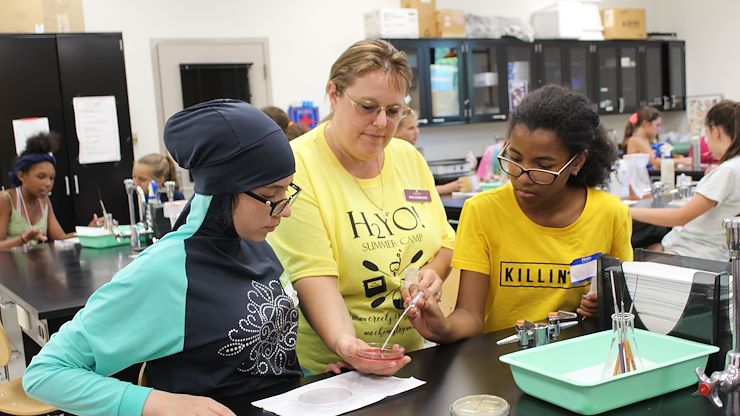
On Thursday, the campers went hiking at French Creek State Park where they learned lessons on topography. Throughout the week, they learned about different plants, including jewelweed, which can help prevent and treat poison ivy, and the impact of invasive species.
On the last day, the students presented their project boards to their families, discussing what they learned and enjoyed from the experience. Overall, the favorite activities were kayaking, creek snorkeling and making new friends.
“This was the first time I went kayaking, and it was fun being in the water and getting wet,” said Aly DePalma.
“I learned that dragonflies live and grow in the water as larvae before they fly,” said Samantha Smith.
“It was cool to see animals in the water in their natural habitat instead of reading about them in a textbook,” added Siena Vitelli.
The students received a certificate of completion, water-resistant notebook, drawstring bag and gift card as well as a blue marble signifying the responsibility they each hold in taking care of our blue planet.
The students’ project boards are on display at MCCC’s Sustainability and Innovation Hub at 140 College Drive.
